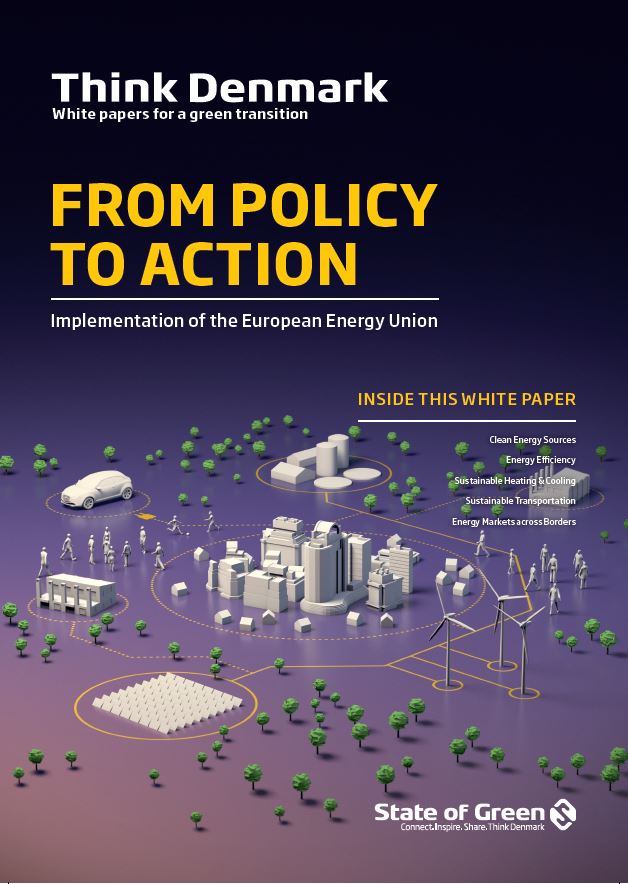Download our publication on from policy to action
This article is part of our publication ‘From Policy to Action’
Download nowPerspective
Transport


Private, heavy and maritime transport produces a large CO2 footprint today and this footprint has only increased over the last decade.Decarbonising the transportation of goods and people is one of the largest challenges, but also represents one of the biggest opportunities.
From 1990 to 2016, most of the major GHG emitting sectors (electricity, heat, industry and buildings) managed to reduce CO2 emissions. However, transport (especially road transport) is a noticeable exemption from this trend. For this reason, the share of GHG emissions from transport in the EU
went from 15 percent to 24 percent during this period of time. The transport sector has traditionally been difficult to decarbonise due to the lack of alternatives to gasoline and diesel combustion engines. However, recent years have shown promising alternatives developing.
Road transport accounts for more than 70 percent of GHG emissions in the transport sector in Europe and passenger cars alone account for more than 40 percent. However, it is clear that road transport is also where the most readily available technical solutions can be found. It is crucial to bring all available technologies into play – electric cars, trains and buses, biofuels, plug-in hybrids, biogas, electrofuels and more collective transportation. All of
these technologies can contribute to a decarbonised transport sector and thereby achieve clean energy objectives.

This article is part of our publication ‘From Policy to Action’
Download nowSales of electric vehicles are accelerating at unprecedented speeds as the selection of models is widening and battery costs are falling. A MIT study from 2016 suggests the 87 percent of all trips in passenger cars can be made in electric vehicles. As battery range increases and charging infrastructure deployments accelerate, this share will be even higher in the future.
Solutions to heavy duty vehicles are also entering the market. The first steps towards the use of electricity and biogas in city buses are already being deployed across Europe. Furthermore, the development within advanced biofuels has the potential to reduce carbon emissions from heavy duty vehicles significantly. Even maritime transport is starting to move. In particular, short sea shipping routes can benefit from electrification and the use of biogas, sustainable biofuels or even electrofuels.
The revision of the Renewable Energy Directive includes a target of incorporating 14 percent renewable energy in the transportation sector, which paves the way for the increased deployment of electricity, biogas and biofuels. 1st generation biofuels generated from feed and food crops will be phased out. Instead this opens for incorporating more sustainable and advanced biofuels based on waste and by-products from agriculture, industry and households.
Investments in sustainable transportation have to be planned over the long term. Decisions taken over the next few years will define the landscape for decades. Investments that make better use of the infrastructure, create less congestion and ensure a better traffic flow will all contribute to sustainable transport. The political will need to accompanied by a willingness to support innovation, research and development in current and future solutions within all technologies.